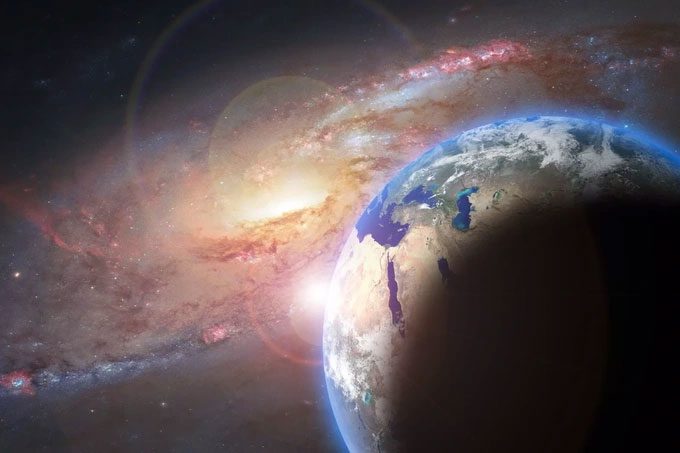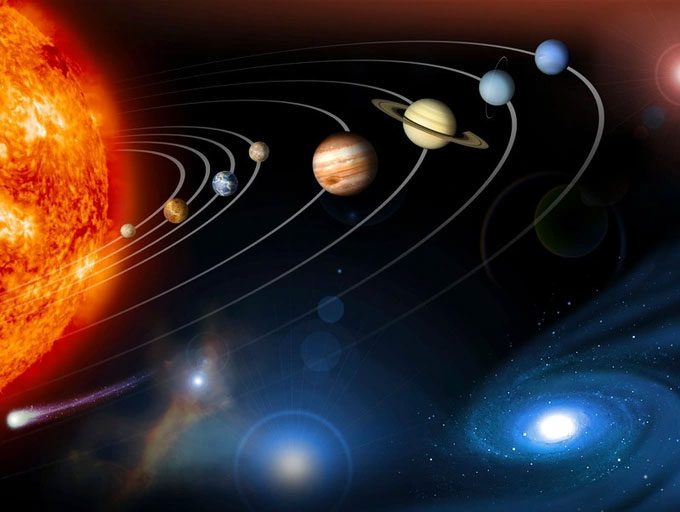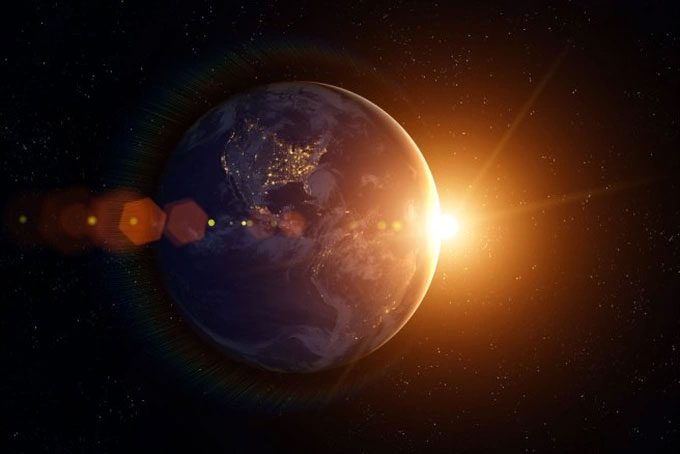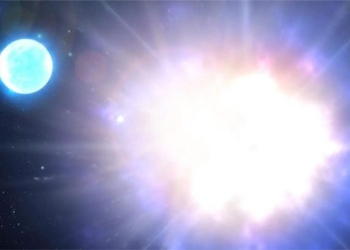A Dark Scenario That Could Occur If Earth Deviates from Its Orbit
In the novel “The Wandering Earth” by author Liu Cixin, he describes a “fantastical” scenario in which world leaders decide to move Earth away from the Solar System to escape an impending massive explosion. In the story, the explosion is depicted as powerful enough to annihilate all nearby planets.

Will Earth really leave the Solar System one day?
Although this novel is entirely based in the realm of science fiction, it still raises questions among scientists: Could Earth actually leave the Solar System one day?
Could Earth Leave the Solar System?
“I’m not sure this could happen,” said Matteo Ceriotti, an aerospace engineer and lecturer in Space Systems Engineering at the University of Glasgow (UK), when asked about this topic.
However, Ceriotti emphasized that “not sure” does not mean “impossible.” He argues that theoretically, this could be achieved through the impact of a massive object.
“Earth could be displaced from its orbit if impacted by a massive object coming from outside the Solar System,” he stated. “And this is completely unpredictable. If the object is fast enough, large enough, and close enough, it could ‘knock’ Earth out of its existing orbit.”

The planets are currently in a stable orbit around the Sun.
Timothy Davis, a senior lecturer in Physics and Astronomy at Cardiff University (UK), agrees with this viewpoint but from a different angle.
He believes that the planets are currently in a stable orbit around the Sun. However, if the Sun were to “collide” with another star, everything could be thrown into chaos.
“The planets orbit the Sun due to gravitational interactions. However, this force could be disturbed if the Sun ‘encounters trouble,’ causing Earth and other planets to lose their original orbits,” Davis explained.
Nevertheless, he also acknowledges that such “encounters” between stars are quite rare. Historically, we have only recorded one star, Gliese 710, with an orbit that could approach the Solar System, but this occurs over a cycle lasting up to 1 million years.
Scientists agree that such an event is far from imminent. However, in the worst-case scenario, what would happen to Earth if we were to separate from the Solar System?
What Would Happen?
For any reason, Earth’s departure from the Solar System would undoubtedly lead to the extinction of most life on our planet.

When Earth is no longer in the Solar System, we will move off orbit.
One widely accepted hypothesis is that when Earth is no longer in the Solar System, it will move off orbit. At that point, Earth will drift into interstellar space until it is consumed by another star or a black hole.
On the planet’s surface, frost will also appear, as moving farther from the Sun results in lower temperatures. Eventually, Earth would progress towards complete freezing.
Moreover, most of the life sources that organisms on Earth rely on come from the Sun, whether directly (like plants through photosynthesis) or indirectly (like herbivores and trees). Moving away from the Sun would also mean the disappearance of life.
It is likely that the atmosphere would cease to exist. Before cooling down, the global climate on Earth would also fall into chaos due to the loss of radiative balance from the Sun, and energy would dissipate into deep space.
In addition to random events, scientists also predict that our galaxy will collide with the Andromeda galaxy (2.5 million light-years away), leading to significant disruptions in the Solar System. Furthermore, it is predicted that the Sun will expand and engulf Earth within the next 5 billion years.
However, we do not need to worry about this for the next few billion years.





















































